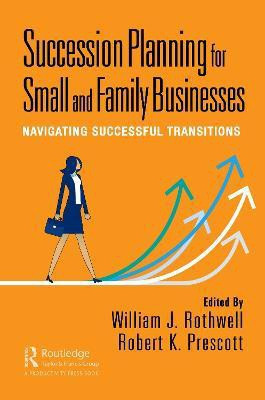Succession Planning for Small and Family Businesses(English, Hardcover, unknown)
Quick Overview
Product Price Comparison
Who will lead your organization into the future? Have you created the systems to properly implement required succession transitions? Have you put the financial tools in place to fund the transition? Do you want a plan that connects with your personal and company core values? When do you include timely planning related to strategy and talent issues? What are the appropriate communication strategies for sharing your plan? What legal issues need consideration related to the strategy, financial, and people aspects of succession? So, what is preventing you from starting this effort tomorrow? Small and family businesses are the bedrock of all businesses. More people are employed by small and family-owned businesses than by all multinational companies combined. Yet the research on small and family businesses is bleak: fewer than one-third of small business owners in the United States can afford to retire. Only 40% of small businesses have a workable disaster plan in case of the sudden death or disability of the owner, and only 42% of small businesses in the United States have a succession plan. Fewer than 11% of family-owned businesses make it to the third generation beyond the founder. Lack of succession planning is the second most common reason for small business failure. Many organizations often wonder where to start and what to do. Succession Planning for Small and Family Businesses: Navigating Successful Transitions presents a comprehensive approach to guiding such efforts. Small and family-owned businesses rarely employ first-rate, well-qualified talent in human resources. More typically, business owners must be jacks-of-all-trades and serve as their own accountants, lawyers, business consultants, marketing experts, and HR wizards. Unfortunately, that does not always work well when business owners embark on planning for retirement or business exits. To help business owners avert problems, this book advises on some of the management, tax and financial, legal, and psychological issues that should be considered when planning retirement or other exits from the business. This comprehensive approach is unique when compared to the books, articles, and other literature that currently exist on the market. This book takes on a bold and integrated approach. Relevant research combined with the rich experiences of the authors connects this thorough, evidence-based approach to action-based approaches for the reader.


